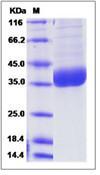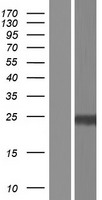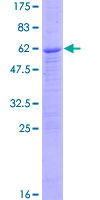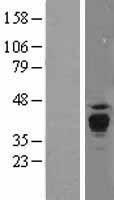order histories, retained contact details for faster checkout, review submissions, and special promotions.
Forgot password?
order histories, retained contact details for faster checkout, review submissions, and special promotions.
Locations
Orders Processing,
Shipping & Receiving,
Warehouse
2 Shaker Rd Suites
B001/B101
Shirley, MA 01464
Production Lab
Floor 6, Suite 620
20700 44th Avenue W
Lynnwood, WA 98036
Telephone Numbers
Tel: +1 (206) 374-1102
Fax: +1 (206) 577-4565
Contact Us
Additional Contact Details
order histories, retained contact details for faster checkout, review submissions, and special promotions.
Forgot password?
order histories, retained contact details for faster checkout, review submissions, and special promotions.
PPT1 / CLN1
palmitoyl-protein thioesterase 1
PPT1 is a small glycoprotein involved in the catabolism of lipid-modified proteins during lysosomal degradation. The encoded enzyme removes thioester-linked fatty acyl groups such as palmitate from cysteine residues. Defects in this gene are a cause of infantile neuronal ceroid lipofuscinosis 1 (CLN1, or INCL) and neuronal ceroid lipofuscinosis 4 (CLN4). Two transcript variants encoding different isoforms have been found for this gene.
| Gene Name: | palmitoyl-protein thioesterase 1 |
| Synonyms: | PPT1, CLN1, Palmitoyl-protein hydrolase 1, Palmitoyl-protein thioesterase, INCL, PPT-1, PPT |
| Target Sequences: | NM_000310 NP_000301.1 P50897 |








If you do not find the reagent or information you require, please contact Customer.Support@LSBio.com to inquire about additional products in development.









